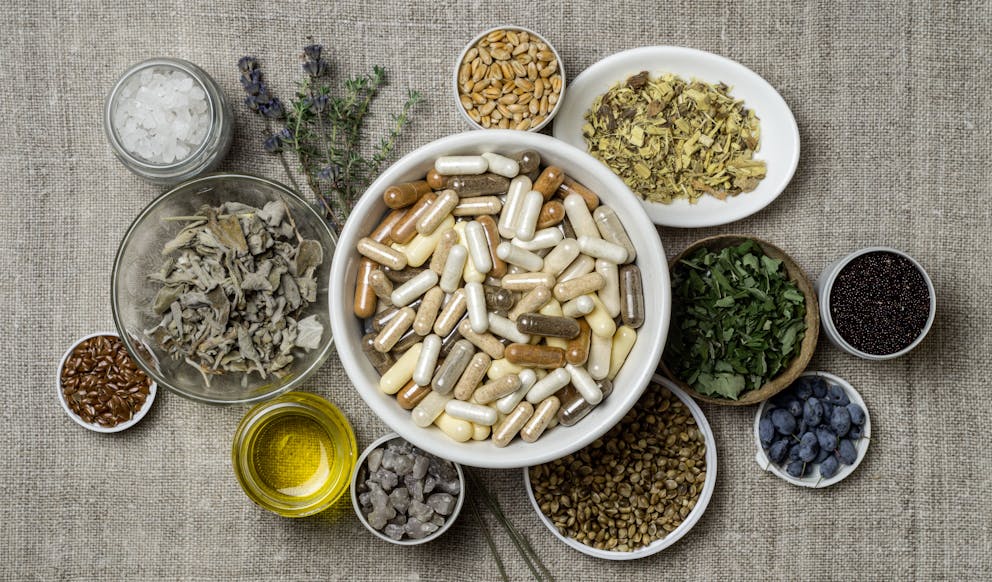How NOT to Get Small Intestinal Bacteria Overgrowth (SIBO)

25 Top Home Remedies That Really Work
Explore powerful home remedies for common health issues
Discover how to use everyday household ingredients to address minor ailments
Get practical tips for the safe and effective use of home remedies

25 Top Home Remedies That Really Work
Explore powerful home remedies for common health issues
Discover how to use everyday household ingredients to address minor ailments
Get practical tips for the safe and effective use of home remedies

25 Top Home Remedies That Really Work
Explore powerful home remedies for common health issues
Discover how to use everyday household ingredients to address minor ailments
Get practical tips for the safe and effective use of home remedies

25 Top Home Remedies That Really Work
Explore powerful home remedies for common health issues
Discover how to use everyday household ingredients to address minor ailments
Get practical tips for the safe and effective use of home remedies

25 Top Home Remedies That Really Work
Explore powerful home remedies for common health issues
Discover how to use everyday household ingredients to address minor ailments
Get practical tips for the safe and effective use of home remedies

How to Read Your Body
Learn to recognize common symptoms and uncover their underlying health issues
Understand the signs of nutrient deficiencies to manage your health
Explore the four metabolic body types and the core factors that influence them
Interpret your body's signals from head to toe to identify potential health concerns

How to Read Your Body
Learn to recognize common symptoms and uncover their underlying health issues
Understand the signs of nutrient deficiencies to manage your health
Explore the four metabolic body types and the core factors that influence them
Interpret your body's signals from head to toe to identify potential health concerns

How to Read Your Body
Learn to recognize common symptoms and uncover their underlying health issues
Understand the signs of nutrient deficiencies to manage your health
Explore the four metabolic body types and the core factors that influence them
Interpret your body's signals from head to toe to identify potential health concerns

How to Read Your Body
Learn to recognize common symptoms and uncover their underlying health issues
Understand the signs of nutrient deficiencies to manage your health
Explore the four metabolic body types and the core factors that influence them
Interpret your body's signals from head to toe to identify potential health concerns

How to Read Your Body
Learn to recognize common symptoms and uncover their underlying health issues
Understand the signs of nutrient deficiencies to manage your health
Explore the four metabolic body types and the core factors that influence them
Interpret your body's signals from head to toe to identify potential health concerns
Experiencing small intestinal bacteria overgrowth (SIBO) can be a real struggle, with its associated symptoms of bloating, constipation, or diarrhea-causing disruption to your daily life and overall health.
Learn about the causes of SIBO, its symptoms, and what you can do to improve your digestive health.
Understanding SIBO and Its Symptoms
SIBO, or small intestinal bacterial overgrowth, is a condition that wreaks havoc on gut health. It occurs when food and fiber ferment excessively in the small intestine, producing methane, hydrogen, and hydrogen sulfide gases.
This bacterial overgrowth within the confines of your small intestine can manifest through various symptoms. From bloating to constipation to diarrhea - these signs may vary across individuals but are all rooted in this intestinal imbalance.
A Deep Dive into SIBO Symptoms
Bloating is one symptom often reported by those battling with SIBO. This uncomfortable sensation arises when dietary fibers get fermented by an excess population of bacteria residing in the small intestine.
For some, SIBO causes constipation and diarrhea as they deal with bacterial overgrowth. This alteration in bowel movements results from changes induced by this microbial imbalance, affecting waste transit time through the digestive tract.
Gut Health: In the Crossfire of SIBO
Your gut health is vital beyond digestion as it also absorbs nutrients essential for overall well-being.
When there's an onslaught of small intestinal bacterial overgrowth (SIBO), nutrient absorption takes a hit, leading to malabsorption issues that, if not addressed promptly, could spiral into nutritional deficiencies.
In addition, abnormal levels of bacteria disrupting your small intestine ecosystem can trigger more than just physical discomfort; they potentially damage your intestinal lining over time, possibly resulting in further complications like leaky gut syndrome.
Diagnosing SIBO
You might be dealing with small intestinal bacterial overgrowth (SIBO). Let's delve into how this condition is diagnosed and why a diagnosis is so important.
The Importance of Accurate Diagnosis
An accurate diagnosis will serve as your roadmap to recovery from SIBO. It helps avoid unnecessary detours or ineffective treatments and escalating risk factors.
An on-point diagnosis also sheds light on just how severe your condition is.
Accurately recognizing a person's medical situation can provide valuable data that permits healthcare professionals to tailor their treatment approaches according to each individual's particular requirements and conditions.
Understanding Breath Tests
SIBO breath tests measure gases like hydrogen produced when bacteria have a feast fermenting stuff within your gut.
A convenient method here is the hydrogen breath test. This measures hydrogen concentrations exhaled after consuming a sugar solution such as lactulose or glucose.
High levels suggest too much bacterial activity before these sugars reach the colon - essentially waving flags indicating the potential presence of SIBO.
In simple terms, drink the solution and provide multiple breath samples over several hours post-drink, which will then be analyzed for gas content, thus confirming if there’s indeed excessive bacterial growth in your small intestine.
Testing for SIBO can involve measuring this gas from these collected samples to pinpoint its presence accurately. Remember, though functional, no single test offers 100% accuracy, so consider other related signs and symptoms when diagnosing this complex disorder.
Now that we've got our diagnostics sorted let’s shift gears towards treating diagnosed cases naturally using various methods, including dietary changes and herbal supplements.
Treating SIBO Naturally
Small intestinal bacterial overgrowth (SIBO) can be a challenging condition to address, but there are natural remedies that can help restore gut health.
These remedies include dietary adjustments and herbal supplements that aim to maintain optimal acidity levels in the stomach.

Apple Cider Vinegar as a Natural Remedy
Let's talk about apple cider vinegar - it's not just a salad dressing. This pantry staple is renowned for its health benefits and is an excellent natural remedy for treating SIBO.
The acetic acid in apple cider vinegar aids digestion by effectively breaking down food particles and creating an unfavorable environment for harmful bacteria.
Regularly incorporating apple cider vinegar into your diet can promote the growth of beneficial gut flora and significantly alleviate SIBO symptoms.
The Role of Betaine Hydrochloride Tablets
Now, let's discuss the importance of betaine hydrochloride tablets as a natural remedy for SIBO. These tablets are not just random pills; they play a significant role in maintaining gut health.
The tablets help promote the production of stomach acid, a necessity for efficient digestion and warding off bacterial overgrowth in the small intestine.
Inadequate stomach acid can lead to inefficient nutrient breakdown and absorption, allowing unwanted bacteria to thrive in the small intestines. Regularly using betaine hydrochloride tablets ensures sufficient acidity levels for efficient digestion and nutrient uptake, reducing the risk of SIBO.
Dietary Approaches for Managing SIBO
In addition to herbal supplements, dietary modifications are essential for managing SIBO. Creating a proper eating pattern with sufficient rest periods between meals is necessary.
Eating without giving your digestive system time to rest can inadvertently contribute to intestinal bacterial overgrowth.
Dietary Approaches for Managing SIBO
Dealing with small intestinal bacterial overgrowth (SIBO) can feel like an uphill battle, but incorporating specific diets could ease your journey. The Low-FODMAP diet and elemental diet stand out as two dietary strategies that may prove beneficial.
The Low-FODMAP Diet
The Low-FODMAP diet limits the intake of specific carbohydrates known collectively as Fermentable Oligosaccharides, Disaccharides, Monosaccharides, and Polyols (FODMAPs).
These substances often go undigested in our small intestine and become a feast for bacteria once they reach the large intestine.
A low-FODMAP dietary plan might assist in controlling SIBO by reducing bacterial food sources. However, it's essential to remember not to fall into frequent eating patterns without sufficient rest between meals since this habit can contribute to SIBO - even when following a low-FODMAP routine.
The Elemental Diet
An additional or supportive approach is adopting an elemental diet. This unique feeding strategy offers nutrients in their most basic form, which eases digestive load and helps manage bacterial growth.
An appropriately structured elemental diet ensures nutrient sufficiency while keeping potential triggers for bacterial overgrowth at bay. However, always consult healthcare professionals before starting such a regimen due to its potential impact on overall health.
Making Dietary Changes Work For You
Navigating these diets might initially seem intimidating, but breaking it down into smaller steps makes it more manageable. Understand how foods impact your gut health, then slowly incorporate changes based on those insights.
Remember, managing SIBO through dietary modifications requires persistence and patience; everyone’s body responds differently, so what works best for you may differ from others' experiences.
Lifestyle Changes for Better Management of SIBO
To effectively manage SIBO, it is essential to understand the complexities of gut bacteria and take necessary steps for improvement. This involves tuning into your gut bacteria and making necessary adjustments.
Gut Bacteria
In our digestive system, both good bacteria and harmful bacteria play crucial roles. In an ideal world, these two types maintain harmony; however, they can lead to health issues when out of sync in conditions like SIBO.
You might consider adding probiotic supplements to your daily routine to restore this balance, known for their beneficial bacterial-boosting properties.
Nutrient Deficiencies
Nutrient deficiencies silently rob your body of essential fat-soluble vitamins such as A, D, and K, which are critical in maintaining overall health.
Adding digestive enzymes could be a game-changer by assisting with food breakdown, thus facilitating better nutrient absorption and keeping deficiencies at bay.
Migrating Motor Complex
A less celebrated hero on this journey towards managing SIBO is the migrating motor complex (MMC). These contractions keep things moving through our intestines while also helping control bacterial populations.
Research shows that disruptions or irregularities in MMC functioning can significantly contribute to developing conditions such as SIBO. Forming habits encouraging MMC activity could become part of your winning strategy against SIBO.
This path may seem daunting, but remember that each step taken toward improving gut health relieves symptoms associated with this condition.

Herbal Antimicrobials for Combating SIBO
A promising avenue for managing small intestinal bacterial overgrowth (SIBO) may be herbal antimicrobials such as clove, garlic, and oregano. Their potent antibacterial properties are instrumental in clearing out harmful bacterial overgrowth within the gut.
Oregano Oil: A Herbal Warrior Against Bacteria
Research has shown that oil derived from oregano leaves is packed with antibacterial capabilities. It damages harmful bacteria's cell membranes, curbing their growth and survival inside your digestive system.
This mechanism makes it an effective weapon against different types of bacteria involved in SIBO. Whether you consume it through diet or supplementation, oregano can help maintain balance in your gut flora.
Clove: The Spice That Heals
Cloves aren't just flavorful spices but also health-enhancing powerhouses due to their high eugenol content. Eugenol boasts vital antibacterial attributes, making cloves beneficial in managing conditions like SIBO, where bacterial overgrowth occurs.
Adding cloves to your meals boosts taste and aids digestion by preventing excessive microbial growth within the small intestine.
Garlic: The Natural Antibiotic
Famed for its extensive health benefits, garlic is crucial in combating SIBO naturally, courtesy of allicin - a compound known for its robust antimicrobial activity against various pathogens, including those associated with SIBO.
Incorporating garlic regularly into your diet could alleviate symptoms related to this condition while enhancing overall gastrointestinal function.
Remember, these herbs might offer some benefits but can't replace expert medical advice or treatment for severe or ongoing symptoms of Small Intestinal Bacterial Overgrowth (SIBO). Always turn to healthcare professionals for help.
Conclusion
Understanding SIBO and its symptoms is the first step to reclaiming your gut health. A proper diagnosis, often through breath tests, can set you on the right path for treatment.
Natural remedies like apple cider vinegar and betaine hydrochloride tablets are potential game-changers in treating SIBO naturally.
Dietary approaches such as a low-FODMAP or elemental diet may help manage your symptoms effectively.
Lifestyle changes focusing on improving digestive tract health could bring about a significant improvement in managing gut bacteria balance. Herbal antimicrobials offer another layer of defense against intestinal bacterial overgrowth.
Next blog
The 6 Child IQ KillersTags

Popular
08/21/2024
40.8K views
05/22/2024
37.1K views
11/18/2024
216.5K views
03/18/2024
11/21/2022




